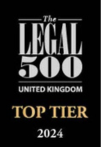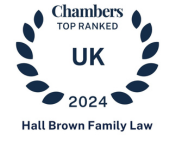Rows About Handbags, Heels And Watches Delaying Divorces
Published on 23 June, 2021 | Back to News/Press

Separating spouses across England and Wales are taking longer to conclude the terms of their divorces because of rows about how to divide the contents of their wardrobes.
One of the country’s leading family law firms has claimed that some husbands and wives were demanding that handbags, watches and even footwear should be taken into account when deciding the financial terms of their split.
Alison Fernandes, a partner with Hall Brown Family Law, has described how accessories and other personal possessions had become something of a “pressure point” in settlement negotiations.
However, she explained that courts were often unwilling to spend time deliberating the value of even considerable collections.
“Even in the most amicable of divorces, the process can be stressful for those involved.
“When it comes to determining a financial settlement, the main elements – including what happens to a couple’s marital home, their bank balance or shares – are generally dealt with in a straightforward manner.
“That means emotion or potential for disagreement is sometimes tied to other assets, such as their possessions.
“Previously, we have seen cases in which that attention has been focused on cars, art, antiques or even wine.
“In recent years, though, I have seen a number of cases in which husbands and wives have insisted that amounts spent on designer handbags, shoes or watches should be factored into how their joint finances are divided.
“That’s partially because of a recognition that people become sentimentally attached to things which they own and also because some of these items are collectable and increase in value over time.
“Divorce settlements are principally based on meeting the needs of the individuals involved.
“Yet we have seen some instances of men and women using material gathered from social media to support assertions that former partners’ needs may not be as large as claimed due to continued spending habits on luxury items.”
Ms Fernandes was speaking after the publication of figures by the Ministry of Justice showing that almost 40,000 couples went to court during 2020 in order to resolve discussions about how to divide their assets.
One-quarter of the financial settlements which were eventually ordered were disputed with almost eight per cent being contested right to the end.
Ms Fernandes outlined how couples were required to disclose all assets worth in excess of £500 as part of the divorce process.
She added that in one case dealt with by Hall Brown, a husband had sought to reduce the size of the settlement made with his ex-wife by highlighting the amount spent on handbags during their time together.
In another divorce handled by the firm, a man suggested that his former wife could sell her collection of handbags to help meet the costs of life after their marriage ended.
A recent study indicated that many collectable designer handbags were worth almost 20 per cent now than they were 12 months ago, with some appreciating by 108 per cent over course of last decade.
The same research also concluded that a number of the most well-known makes of designer watch had risen five per cent in value during 2020.
Even so, Ms Fernandes said that courts rarely entertained requests to consider spouses respective possessions when weighing the details of divorce settlements.
“Courts are very conscious of the importance of ensuring that the outcome of financial discussions on divorce is fair.
“They also understand that determining who gets what can add to the time and money involved as well as adding to the natural tensions associated with divorce. Obtaining valuation evidence, for instance, can cost several thousand pounds depending on the items concerned.
“It is only really merited if such assets account for a conspicuous or disproportionate amount of a couple’s overall wealth. If not, spouses may often be allowed to keep what they own, regardless of their ex’s objections.”







